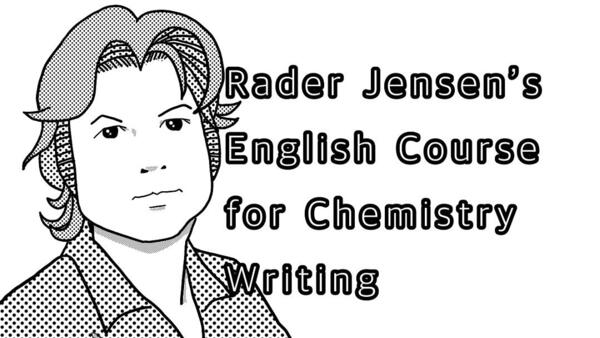CSJ Journals
[化学論文のための英語講座] 第23回:助動詞 may
(English version is here.)
「may」は様々な使い方があります。可能であることを述べますが「can」より確実性が低いです。過去、現在、未来のどの時間軸でも利用できます。また「許される」という意味も含まれます。例文を見てみましょう。
1. Selective removal of the triisopropylsilyl (TIPS) group may be possible with carefully selected conditions.
訳文:TIPS基の選択的脱離は、慎重に条件を選択すれば可能であろう。
解説:確実ではありませんが、可能性が割と高いと思われます。
「may」の過去形は「might」です。「might」も可能性を述べます。過去、現在、未来のどの時間軸でも利用できます。
条件文では、「if, then」の文では「may」は事実であり、「might」は仮定と考えられますが、条件文の場合は研究論文にはあまり現れないでしょう。具体的な例を見てみましょう。
2. If LDA is insufficiently basic, we may try n-BuLi.
3. If LDA is insufficiently basic, we might try n-BuLi.
訳文:LDA の塩基性が不十分であれば、n-BuLi を試すかもしれない。
解説:2と3で訳文上は変わりません。ただ2は許可のニュアンス(n-BuLi を試してもよい)が含まれますが、3は仮定のニュアンス(まだ決めていないが、必要であればn-BuLi を試す選択もある)になります。
4. If the reductive elimination had been slow, it may have been due to the narrow bite angle of the supporting ligand.
5. If the reductive elimination had been slow, it might have been due to the narrow bite angle of the supporting ligand.
訳文:還元的脱離が遅かったら、支持配位子の狭い bite angle が原因であっただろう。
解説:こちらも訳文上は変わりません。4は「if, had been」は過去で仮定を示唆しますが「may」は事実を伝えますので少し違和感を与えます。5は「if, had been」と「might」両方が過去仮定を示唆しますので4より適切です。
条件文以外の例文を見てみましょう。動詞は「have been」であれば、過去になり、「be」であれば現在になります。6と7、8と9はそれぞれ同じ意味になります。
6. The sluggish reaction may have been a result of the bulky protecting group.
7. The sluggish reaction might have been a result of the bulky protecting group.
訳文:反応の鈍化は、かさばる保護基の結果である可能性があった
8. The sluggish reaction may be a result of the bulky protecting group.
9. The sluggish reaction might be a result of the bulky protecting group.
訳文:反応の鈍化は、かさばる保護基の結果である可能性がある。
[重要] 「may」は丁寧語でもよく使います。
次回は「Enough and Sufficiently」です。
May has various uses. It shows possibility, but is less certain than [can]. It can be used in past, present, and future time frames. It also includes the meaning of [permitted] or [allowed]. Let us look at an example sentence.
1. Selective removal of the triisopropylsilyl (TIPS) group may be possible with carefully selected conditions.
Explanation: This is not a statement of certainty, but it can be thought to have a relatively high probability.
The past tense of [may] is [might]. [Might] also shows possibility. It can be used in past, present, and future time frames.
In a conditional [if, then] statement, [may] can be thought of as real and [might] can be thought of as hypothetical, however, in research papers conditional statements of this form probably do not appear often. Let us look at a concrete example.
2. If LDA is insufficiently basic, we may try n-BuLi.
3. If LDA is insufficiently basic, we might try n-BuLi.
Explanation: In actual use, 2 and 3 convey the same information. However, 2 could be understood to convey the use of n-BuLi as permitted, while 3 could be understood to convey the use of n-BuLi a possible option.
4. If the reductive elimination had been slow, it may have been due to the narrow bite angle of the supporting ligand.
5. If the reductive elimination had been slow, it might have been due to the narrow bite angle of the supporting ligand.
Explanation: Both of these sentences also express the same information. Sentence 4, [if, had been] suggests a hypothetical past, while [may] implies reality, and thus clashes somewhat. In sentence 5, however, [if, had been] and [might] both suggest a hypothetical past and hence, 5 is more appropriate than 4.
Let us examine a few examples that are not conditional statements. If the verb is [have been], the past is shown, and if it is a form of [be] the present is shown.
6. The sluggish reaction may have been a result of the bulky protecting group.
7. The sluggish reaction might have been a result of the bulky protecting group.
Explanation: These two sentences express the same past tense meaning.
8. The sluggish reaction may be a result of the bulky protecting group.
9. The sluggish reaction might be a result of the bulky protecting group.
Explanation: These two sentences also express the same present tense meaning.
Important: May is often used in polite speech.
At next time, we will discuss Enough and Sufficiently.
